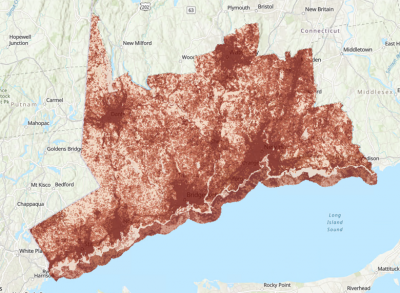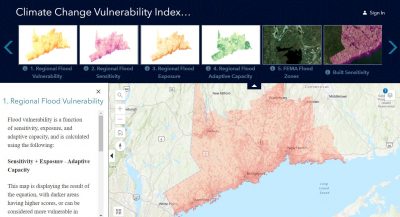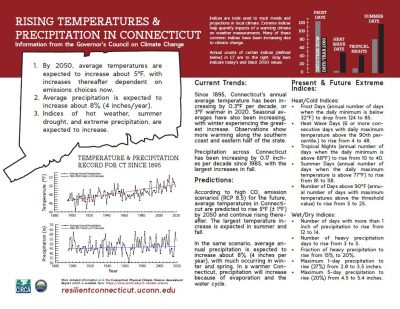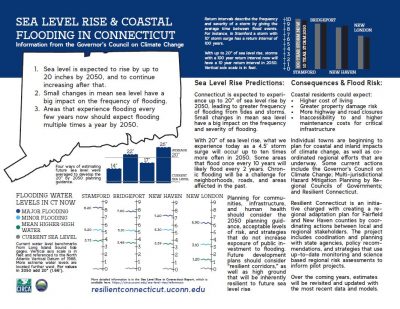The ongoing health crisis has been a challenge for us all. While most of CIRCA’s work, transitioned to virtual formats this past spring, the hard work and efforts of everyone at UConn, CIRCA, and our partners allowed us to keep the Resilient Connecticut project on track, and we thank everyone for their efforts during this difficult time. Phase II of Resilient Connecticut is underway, led by a planning team of Milone & MacBroom, Dewberry, West COG, Metro COG, Naugatuck Valley COG, South Central Regional COG, and the CIRCA research team.
The major tasks in Phase II include inventorying and mapping previous hazard mitigation and resilience projects and data, developing a comprehensive vulnerability assessment of regional climate challenges in Fairfield and New Haven Counties, and developing adaptation scenarios that address these challenges that are implementable.
Input and engagement with a broad range of stakeholders is a fundamental ingredient needed for developing a long term vision for how the region can adapt to climate challenges. For at least the remainder of 2020, in person engagement activities will be limited. However, we’ll be moving to virtual engagement, starting with a “mini” webinar series focused on climate and public health (described below). Other engagement activities will include regional virtual workshops in the project area. And, of course, be sure to save the date annual Resilient Connecticut Climate Adaptation Summit on Friday November 20th. Look for more details on the agenda and registration links very soon.
Advancing Connecticut’s Climate GIS Capacities
Decisions need data and good decisions need good data. In addition to our Sea Level Rise viewer and Coastal Vulnerability Index, we have been working with a number of partners to advance the GIS science for resiliency decision making in Connecticut.
CIRCA has been meeting with COG GIS staff in the Resilient Connecticut project area to coordinate layers that are critical to understanding regional vulnerabilities and, eventually, resiliency opportunities. COGs conduct economic development, transportation, and environmental planning across their towns and produce important GIS layers to communicate information and to identify key intersections of the underlying topics. Each meeting we discuss existing data, creating data from regional planning processes, and aligning attributes and symbology in the data for consistency across the regions. The data will be further developed into the data and plans created by our consultants.
In addition, CIRCA has participated in several meetings about the production of an Environmental Justice mapping tool for the state of Connecticut. This tool is one of the draft suite of actions established by the Equity and Environmental Justice working group of the Governor’s Council on Climate Change. The proposed tool would integrate environmental, social, and economic GIS layers to identify vulnerable populations.
To learn more, please contact our Assistant Director of Research, Dr. Yaprak Onat at yaprak.onat@uconn.edu.
Climate Change & Public Health: Mini-Webinar Series
As we are vividly seeing with the coronavirus pandemic, public health is a foundational piece of a resilient community. Throughout the month of September, hear about Climate Change and Public Health in our mini-webinar series. Focused on topic and condensed on time, enjoy 1,2, or all 6 of our free webinars!
Each webinar will be 45 minutes with about 30 minutes of presentation and 10-15 minutes for questions or interactive exercises. Hear from our incredible line-up of speakers from partners across the region, including Save the Sound, Cary Institute for Ecosystem Studies, Yale Center on Climate Change and Health, the Connecticut Department of Public Health, Save the Sound, the city of Norwalk, and, of course, UConn researchers.
Registration will open soon. More information may be found here.






